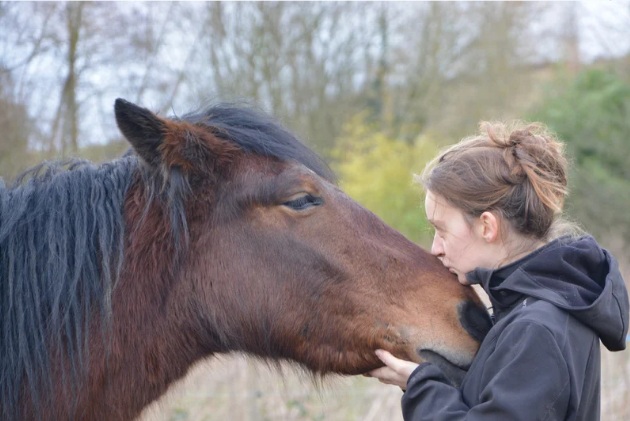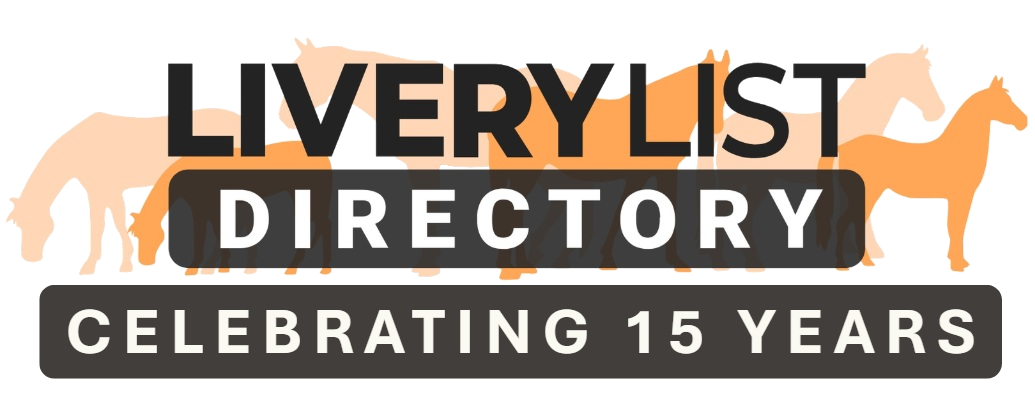Everywhere you look in the equestrian world right now, conversations about social license to operate are gathering pace. These discussions are not just about elite sport or high-profile events – they reach right down into the daily care and management of horses. For livery yard managers, who already juggle countless responsibilities, the concept can feel like yet another demand on your time and resources. However, at its core, social license is about public trust and long-term sustainability: both of which rest on how well we balance welfare and economics in our decisions. As Cat Carter, Course Coordinator for Lingfield Equine Distance Learning, explains, effective yard management requires a fine balance of practical, financial, and welfare skills to ensure the best outcomes for the equines in your care.
 Most of us entered this industry because of our love for horses, and it can be deeply challenging when financial pressures seem to push us into compromises. Do we prioritise the needs of the herd, safe and enriching environments, or optimum nutrition? Or do we sometimes make decisions based on what feels economically manageable in the short term? While leading with our heads may seem safer, if that approach consistently side-lines the horse’s best interests, it undermines both our duty of care and the public’s confidence in our industry. Without public confidence, the future of our businesses: and indeed the wider equestrian sector, becomes less secure.
Most of us entered this industry because of our love for horses, and it can be deeply challenging when financial pressures seem to push us into compromises. Do we prioritise the needs of the herd, safe and enriching environments, or optimum nutrition? Or do we sometimes make decisions based on what feels economically manageable in the short term? While leading with our heads may seem safer, if that approach consistently side-lines the horse’s best interests, it undermines both our duty of care and the public’s confidence in our industry. Without public confidence, the future of our businesses: and indeed the wider equestrian sector, becomes less secure.
This is where continued professional development (CPD) plays a vital role. By investing in training, yard managers can discover ways to strengthen their businesses, improve efficiency, and reduce unnecessary costs. When the “head” of the business runs more smoothly, it creates space to let the “heart” – the welfare of the horse – take centre stage. Courses like Lingfield Equine Distance Learning’s UKRS Livery Yard Manager certificate are designed to give yard owners the tools not just to survive, but to thrive. They help managers find that sweet spot where financial sustainability and high standards of welfare support one another, rather than compete.
A viable, well-run yard is one that attracts and retains clients, stands out from competitors, and adapts to the changing demands of horse owners. Over recent years, we’ve seen the rise of innovative livery models, such as track and retirement livery to rehabilitation and luxury packages. Diversification doesn’t always mean reinventing your entire business. Sometimes, it’s about refining what you already do: improving processes, updating knowledge, and staying on top of industry best practice. Professional development provides the perspective and confidence to make those changes effectively.
Ultimately, ongoing training is not just about ticking a box for compliance. It’s about demonstrating, to clients and the wider public, that you are committed to running a responsible, forward-thinking business where horses’ welfare is never compromised for economic reasons. In an industry where reputation and trust are everything, that commitment may be the most valuable asset you have.
Expanding Your Equine Knowledge
Training companies that specialise in equestrian courses, such as Lingfield Equine Distance Learning, provide a range of courses you can work on from home either on basic equestrian care and management, or more specialist courses such as nutrition, psychology and behaviour. These types of courses are often split into ‘accredited’ which are industry recognised courses, or ‘non accredited’ which are courses that are not formally recognised but are good for CPD and expanding knowledge around a certain aspect with more flexibility and less pressure.
Whilst many believe that horse care courses are more suited to horse owners, you’d be surprised how many self-learned grooms, or those that have learned on yards with no formal training, may be missing aspects of horse care knowledge. Those who are self-taught have a wealth of experience based on the horses they have individually taken care of, which means gaps exist because they have likely not experienced every possible scenario personally. This is why it is of equal importance to support your staff, as well as yourself, with their own continued professional development.
 Encouraging your staff to enrol on their BHS Stages, or if they would prefer not to sit exams, an equivalent level course which is based around the same syllabi. These courses would typically cover topics such as care of the stabled horse and routine care, basic wound or ailment management, parasite control, basic nutrition, safety handling horses, and tack care amongst other topics. For staff who are a little more advanced, the accredited Responsible Groom course could be useful in developing their existing skills, to encourage professional development in terms of reporting, interpersonal skills and legal or moral responsibilities of their employment.
Encouraging your staff to enrol on their BHS Stages, or if they would prefer not to sit exams, an equivalent level course which is based around the same syllabi. These courses would typically cover topics such as care of the stabled horse and routine care, basic wound or ailment management, parasite control, basic nutrition, safety handling horses, and tack care amongst other topics. For staff who are a little more advanced, the accredited Responsible Groom course could be useful in developing their existing skills, to encourage professional development in terms of reporting, interpersonal skills and legal or moral responsibilities of their employment.
There is also the opportunity to undertake training in specific areas of equine care such as Equine Feeding and Nutrition or Equine Psychology and Behaviour, both of which can help yard owners understand niche aspects of equine management, and use this in the development and provisions of their yard services. There are also courses available in the UK specialising in equine therapies, groundwork and horse handling, equine health management, equine husbandry, equine biosecurity, lameness and rehabilitation, sports nutrition, livestock transportation, many of which are affordable and can be done in your own time, and can help you develop a targeted niche for your yard. You can find a comprehensive and ever-expanding database of such courses listed on EQUK.
Industry memberships can also offer opportunities for further training. The British Equestrian Trade Association (BETA) offers a range of courses such as Rider Safety Equipment Fitting, ideal for those with riding school or trekking centres, and also offer courses in lorinery and saddle fitting, ideal for those responsible for schooling or exercising within livery packages, or to be able to provide knowledgeable assistance to your clients. They also offer a handful of free consumer training, which can still be beneficial, in topics such as PR, marketing, social media and feed claims.
HR and Staff Training
Having a cohesive team is an essential part of running a successful yard. It can be a challenging environment to work in due to the pressures of working in a dangerous environment in all weathers, which is why effective team working is an essential skill for all individuals involved in your yard to have. Often, people who work with horses do so because they prefer animals to people, but that can mean that issues around communication can lead to breakdowns within the team, which can in turn create situations where animal welfare is compromised. In partnership with the Equestrian Leadership Consultancy, Lingfield are developing the very first certificate in effective equestrian team leadership, due January 2026. Click here to register your interest.
There is also other training that would be recommended for yard owners or their staff to help ensure employees and clients on the yard safe. If you have children and vulnerable adults on the yard it is always advisable to take safeguarding training such as provided by the BHS, British Equestrian or ABRS+. This gives appropriate training to do with any safeguarding matters and helps you understand risks, roles and responsibilities.
Both human and equine first-aid courses could also be advantageous, whether basic first aid, or a dedicated First Aid at Work course. It should be a standard practice of businesses to always have a qualified first-aider on site, and on a livery yard to have at least one person be trained in equine specific first-aid can be ideal as well. There are various providers, both in person and online, that offer basic or advanced human first aid, or equine first aid courses.
Health and Safety training should also be a consideration for staff, to enable them to both work safely, and to help identify responsibilities when it comes to health and safety. There are also specific safety courses that may be useful on a yard such as understanding risk assessments and fire risks. Health and safety courses do not need to be equestrian specific and are readily available.
Training to Support Your Business
This does not need to be specific training courses but keeping up to date with recommended best practice for the livery industry, and knowing where to look can help you find the necessary tools and resources to improve your business, and even make your life easier!
There are frequent online webinars held in aspects of horse husbandry and yard management, covering all aspects by LiveryList, Redwings, World Horse Welfare, National Equine Welfare Council and other independent providers. Many of these are free, or only have a small attendance fee, and can be very useful to help pick up tips and guidance from professionals in the industry.
There are often regular one-off courses to help guide you in terms of marketing and social media such as the BETA Digital Marketing and Social Media course, and the availability of dedicated workshops or mentoring schemes in specific or general aspects of running an equestrian business. These can help give an overview of the needs and responsibilities of running a yard, and help yard owners identify areas of their business where they can make changes or improvements to be more sustainable or profitable.
Continued development helps ensure that you and your staff are trained accordingly, and can help add value to your business. It also ensures that your practise falls in line with expected welfare standards, helping your business to remain agile and resilient to change in the evolving equestrian sector.
Additionally, it is something you can promote on your website if this allows you to specialise or offer additional services bearing in mind you must ensure that you are appropriately insured. Whilst there is a cost versus value question, its important to consider if these new skills can help increase the value or range of service you offer. Investing in training can generate savings and diversification both directly and indirectly for your business, which has an overarching positive impact.
For employee training, to invest in your employees can help retain them, motivate them, and enable you to be more confident in their abilities. Employees who feel valued and supported are more likely to stay, which contributes positively to the stability of your business.
Lingfield Equine Distance Learning offer training for grooms, managers and team leaders in the equestrian industry. They offer flexible, online options with one to one support from dedicated tutors who live and breathe the equestrian industry. You can find a discount code for their courses on LiveryList.
The LiveryList Yard Owner Hub offers a huge amount of information and guidance on all aspects of practical and administrative yard management, and they regularly share details on the website and their Facebook page of available training courses and webinars for professionals within the industry.
